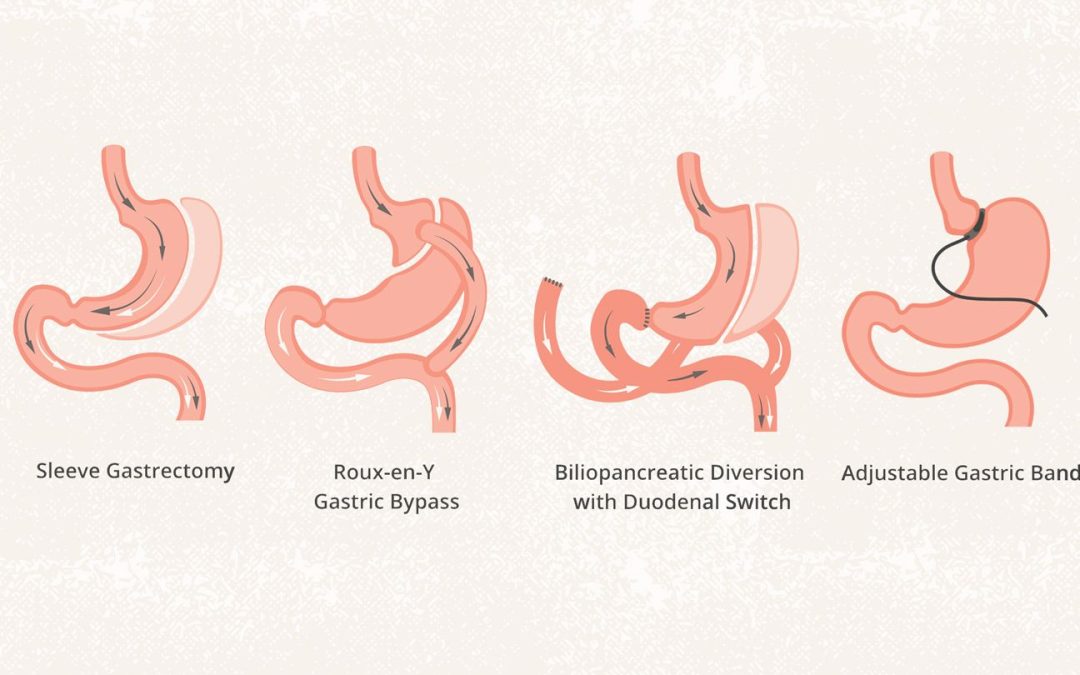Obesity has become one of the most common health disorders in our country, and many people are falling prey to the same. Bariatric surgery is considered the most successful and enduring cure for people suffering from obesity. The number of bariatric surgeries conducted throughout India in recent years has grown exponentially, and the success rate is high.
People who are severely obese and have health issues associated with them, like type 2 diabetes, elevated blood pressure, sleep apnoea, etc., are recommended to opt for bariatric surgery.
What is Bariatric Surgery?
Bariatric surgery helps people lose weight and improve their problems by making changes to their digestive system. It works by making the stomach smaller or changing the small intestine so it absorbs fewer calories. People with severe obesity who are not able to lose weight by adopting lifestyle changes are the best candidates for this type of surgery.
Depending on your condition, health, and other factors, the doctor may suggest the best bariatric surgery approach.
Tired of the constant pain, fatigue, and frustration that come with being overweight? You’re not alone — and there’s help. Dr. Saggu is a compassionate and highly reputed bariatric surgeon in Delhi-NCR, with a track record of guiding thousands toward healthier lives.
What are the Different Types of Bariatric Surgery?
Bariatric surgery is categorized into four types.
Gastric Sleeve
Gastric sleeve, also known as gastrectomy, is the most commonly performed bariatric surgery. It is the safest procedure recommended to perform on many people. The procedure removes a large portion of your stomach, about 80%. What is left behind is a small tubular portion like a sleeve.
After the surgery, you start feeling full quicker than before. The gastric sleeve also reduces hunger hormones, which cuts down your pangs of hunger. As a result, your metabolism is stabilized, your appetite is decreased, and your blood sugar is regulated.
Gastric Bypass
Gastric bypass surgery, also known as Roux-en-Y, is another type of bariatric surgery recommended for highly obese people. It works by changing the route of your small intestine. During the procedure, a surgeon creates a small pouch at the top of your stomach to separate it from the lower portion. They divide your small intestine and bring the new segment to connect to the stomach pouch. The small intestine takes the shape of the alphabet ‘Y’.
After the surgery, the food flows to the new, smaller stomach and lower segment of the small intestine. As the rest of the areas are bypassed, it restricts the amount of food your stomach holds and the nutrition your small intestine absorbs. The restriction of the small intestine makes this method more effective than others.
Biliopancreatic Diversion with Duodenal Switch
This gastric bypass surgery is the original version of the duodenal switch, a surgery that combines sleeve gastrectomy with intestinal bypass. It is similar to gastric bypass surgery but more extreme.
The surgery aims to bypass most of your small intestine to reduce hunger hormones produced in the small intestine and stomach. This surgery also restricts the amount of nutrition your small intestine carries or absorbs. Out of all the four bariatric surgeries, it is considered the most effective method. A safe procedure, this surgery is also helpful for improving metabolic syndromes like diabetes. The only drawback of this surgery is that it makes it hard for your body to absorb enough nutrients to stay healthy.
Stomach Intestinal Pylorus Sparing Surgery
Also known as SIPS, it is a relatively new form of bariatric surgery. This procedure is a modified version of the original duodenal switch to reduce complications. Although early results of this surgery are still being studied, it appears as a promising method that might as well replace the original duodenal switch.
The procedure begins with a sleeve gastrectomy and then divides the first part of the small intestine after the stomach. The surgeon reattaches the small intestine as a loop, requiring only one surgical connection instead of two. As less of the small intestine remains bypassed, the absorption of nutrients is a little higher than others.
Which is the Safest Bariatric Surgery?
Out of all the above-listed surgeries, gastric sleeve is considered to be the safest of all. The procedure leads to minimum side effects and has a higher success rate than any other surgery. The second safest bariatric surgery is the stomach intestinal pylorus sparing surgery.
All the forms of bariatric surgery have a high success rate, ranging up to 90%. Many patients experience a steady weight loss for the first two years and regain some weight after that. The surgeon may recommend lifestyle changes like dieting, exercising, and others to maintain weight after surgery.
Takeaway
Bariatric surgery is a long-term solution to a difficult weight gain problem called obesity. While obesity is hard to beat, and its non-intervention may cause heavy effects on your health, bariatric surgery helps change the biological factors, thus making it easy for you to lose weight without complications. Get in touch with your doctor and discuss your requirements. They will design the best treatment plan after deciding on a suitable type of bariatric surgery.

